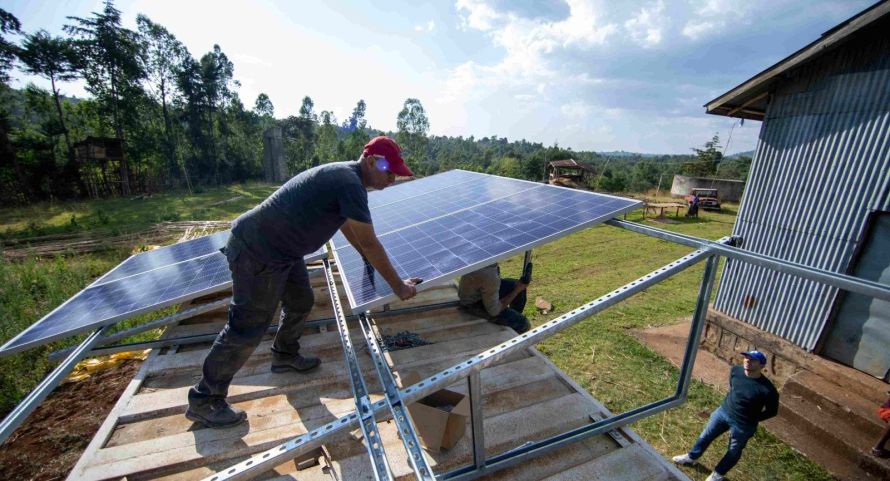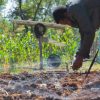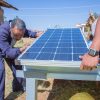Pioneering green cooling in rural Ethiopia

Cooperatives have been producing fruit and vegetables for many decades. Because sensitive fruits are not sufficiently cooled, goods spoil unnecessarily. Together with its partners and other GIZ projects, Green People´s Energy is therefore testing modern solar-powered cooling systems in horticultural cooperatives in rural Ethiopia.
Ethiopia looks back on a successful history of cooperative agriculture that has developed over many decades. Tens of thousands of rural cooperatives produce tonnes of fruit and vegetables, which they either sell directly in local markets or take to rural processing centres where they are refined and become part of the value chain.
However, inadequate refrigeration facilities, especially in remote, off-grid areas, regularly lead to post-harvest losses of temperature-sensitive fruits and vegetables. “We have problems maintaining product quality because avocado is too sensitive. It is easily damaged during harvest, storage and transport,” says Melkato Mariamo. Post-harvest losses are especially challenging, explains the chairman of the Shilicho Multipurpose Farmers’ Cooperative, when transport vehicles are delayed and roads are damaged during the rainy season. “During this extra transport time, many avocados ripen and spoil soon after.”
To present an environmentally and climate-friendly technical solution, Green People´s Energy (GPE) has partnered with two other GIZ projects working to promote agricultural value chains; one is Strengthening Rural Value Chains in Ethiopia, the other is Building an Avocado and Sesame Value Chain in Ethiopia (develoPPP). “In Ethiopia, we are demonstrating how BMZ-funded projects from different sectors can work together effectively. To this end, we are bringing our individual expertise and partner relationships to a joint pilot project on renewable energy,” says Till Serafimov, Country Project Manager of GPE Ethiopia.
Six solar-powered refrigerated containers are currently being set up and installed at the partner cooperatives of the two partner projects. In them, the cooperatives can preserve parts of their harvest until further transport to the markets or processing centres. “Recently we were able to refrigerate tomatoes this way. The experiment was promising,” says Girma Mutisa from the primary cooperative of fruit and vegetable producers in Danchuma. At the cooperative, they hope “that with this technology we can reduce post-harvest losses such as rot, mechanical damage and hygiene problems by maintaining the right temperature and humidity for storage”.
In addition to development prospects, the impact on the climate and environment must also be considered when introducing a new technology. Therefore, the containers used work with climate-friendly natural refrigerants. They also have a large ice storage tank to cool the goods at night. Ice storage has already proven its worth, for example in vaccination refrigerators. Their advantage: the technology reduces the use of batteries and thus avoids environmentally harmful waste.v





